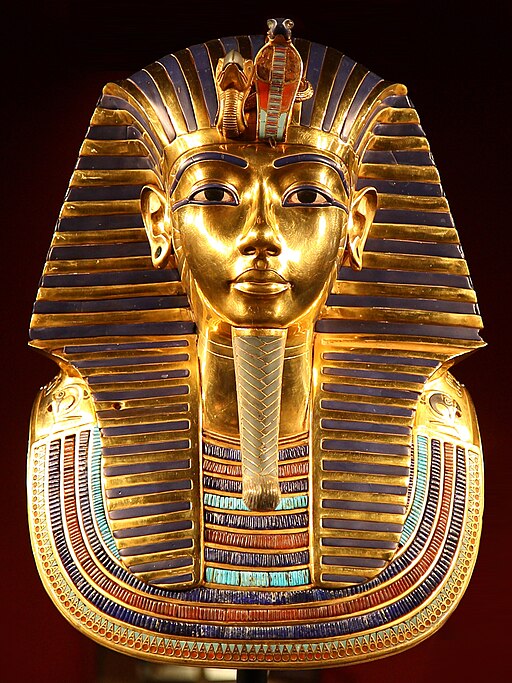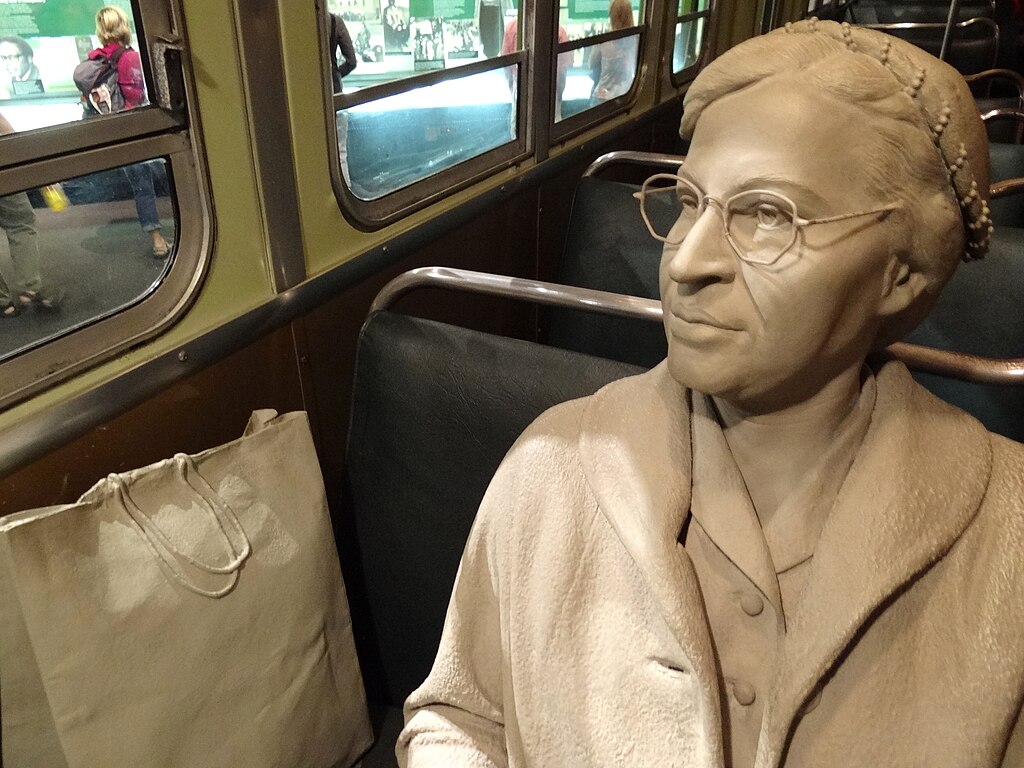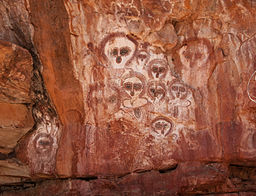
This “Female Figurine” is from a Bronze Age cemetery in the Cyclades, a group of islands in the Aegean Sea located east of the mainland of Greece.
It is a late example of the style of figures called the Spedos Variety, named after an ancient cemetery site on the Cycladic island of Naxos.
This example is unusual in its large size, however consistent in style, which consists of a lyre-shaped head and a torso that is relatively flat except for the nose.
The modeling and incised lines delineate the various limbs and critical elements of the body.
This example retains hints of pigment in the face with red dots across both cheeks, the nose, and the forehead. The pigment is cinnabar, a bright red mineral, which was very precious at the time as it was imported from outside the Aegean.
Faint traces of what may have been blue paint appear in the region of the eyes. There is also a single curled lock of hair painted on the right side of the head.
It seems that the sidelock only appears on the Spedos Variety of female folded-arm figures. This marble sculpture is a fabulous creation of the Early Cycladic Culture and was probably associated with ancient Aegean religious beliefs.
It has the most widespread distribution within the Cyclades and elsewhere, and the most exceptional longevity. All known works of the Spedos variety are female figures.
Spedos figurines are typically slender, elongated feminine forms with folded arms. They are characterized by U-shaped heads and a deeply incised cleft between the legs.
Cycladic Figures originated from the ancient Cycladic culture, which flourished in the islands of the Aegean Sea from c. 3300 to 1100 BCE.
The best-known art of this period and culture are the marble figures, usually called Cycladic “idols” or “figurines.”
The Cyclades is a group of Greek islands, southeast of the mainland in the Aegean Sea. It centers on the island of Delos, considered the birthplace of Apollo, and is home to some of Greece’s most important archaeological ruins.

The majority of these marble figures are highly stylized representations of the female human form, typically having a flat, geometric quality.
It is depicted nude with arms folded across the stomach, and the right arm is held below the left. They feature long, lyre-shaped head, a semi-conical nose, sloping shoulders, narrow arms, and a rounded back.
In more recent times, artists such as Picasso, Matisse, and Moore respected and collected Cycladic art as models of creating emotionally charged yet highly abstracted forms.
Female Cycladic Figure
- Title: Female Cycladic figure
- Date: 2500-2400 B.C.E
- Period: Early Cycladic II
- Material: Marble with traces of polychrome
- Dimensions: 25 1/2 x 6 3/4 in. (64.8 x 17.1 cm)
- Geography: Cyclades: Greek Island Group in the Aegean Sea
- Type: Early Spedos type, attributed to the Fitzwilliam Master
- Category: Ancient Artifacts
- Museum: Honolulu Museum of Art
A Rare Cycladic Figure from the 3rd Millennium B.C.
A Tour of the Honolulu Museum of Art
- Prayers at Sunset, Udaipur, India by Charles W. Bartlett
- “Miono-Matsubara” by Charles W Bartlett
- “Female Figure” from the Cyclades: Greek Island Group in the Aegean Sea
- Sarcophagus Relief Depicting Labors of Hercules
- Male Torso of the Hermes Richelieu Type
- “The Bath: Woman Sponging Her Back” by Edgar Degas
- “Water Lilies” by Claude Monet
- “Seated Nude” by Amedeo Modigliani
Greek Islands in Prehistory | Cycladic Culture
A Tour of Cycladic Art
- Head of a Cycladic Statue, Keros-Syros Culture
- Cycladic Figures (The Legion of Honor)
- Stargazer – Sculpture of a Female Figure
- “Stargazer” Figurine – Kilia-type
- Marble figure of a Woman – Spedos Type (British Museum)
- Cycladic Footed Cup
- Cycladic Figurine
- Cycladic Pyxis
Cycladic Female Figure – Coloring the Past
~~~
“Honour is priceless and glad be he who has it.”
– Greek Proverb
~~~
Photo Credit: By Haa900 (Own work) [Public domain], via Wikimedia Commons 2) By I, the copyright holder of this work, hereby publish it under the following license: [Public domain], via Wikimedia Commons
Popular this Week








 Sponsor your Favorite Page
Sponsor your Favorite Page SEARCH Search for: Search Follow UsJoin – The JOM Membership Program
Sponsor a Masterpiece with YOUR NAME CHOICE for $5
Share this:
- Tweet
